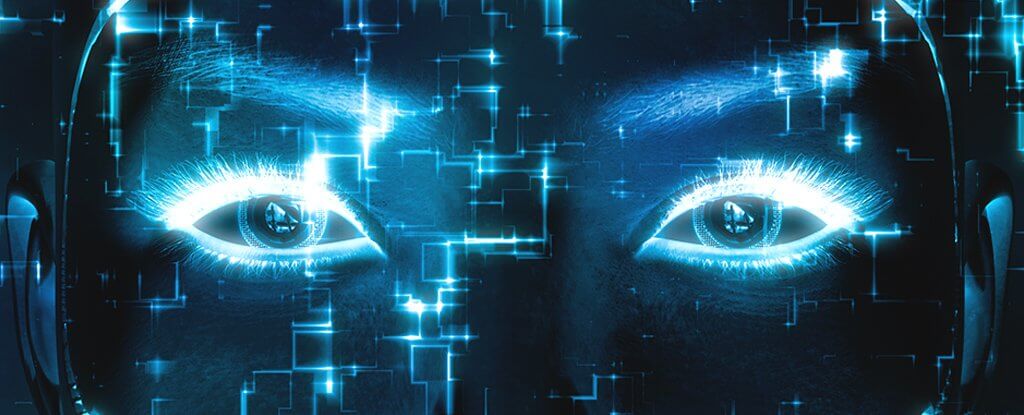
There is a hypothesis, or rather a set of hypotheses, according to which our brain represents not that other, as biochemical quantum computer. At the core of these ideas lies the assumption that consciousness is inexplicable on the level of classical mechanics and can be explained only with the involvement of the postulates of quantum mechanics, the phenomena of superposition, quantum entanglement and others. Scientists from the University of California in Santa Barbara through a series of experiments I decided to find out whether our brain is a quantum computer.
At first glance it may seem that the computer and the brain work the same way – both process information, unable to keep it, make decisions, and dealing with interfaces of input and output. In the case of the brain these interfaces are our senses, and the ability to manage different objects that are not part of our body, such as artificial dentures.
We don’t know much about how our brain works. But there are people who believe that the diversity of the work processes of our brain, which cannot be explained from the point of view of classical mechanics can be explained from the perspective of quantum mechanics. In other words, they believe that aspects of quantum mechanics, like quantum entanglement, the phenomenon of superposition and all the other things on the basis of which works the quantum physics, actually can control the work processes of our brain. Of course, not everyone agrees with this formulation, but either way, the scientists decided to check it out.
“If the issue of quantum processes in the brain, will find a positive response, it will lead to a real revolution in our understanding and treatment of brain function and cognitive abilities,” says Matt Helgeson from the University of California Santa Barbara and one of the team members involved in the study.
A little basic theory. In the world of quantum computing, everything obeys quantum mechanics, allowing to explain the behavior and interactions of the smallest objects in the Universe — at the quantum level, where the rules of classical physics. One of the key features of quantum computing is the use of so-called qubits (quantum bits) as information carrier. Unlike regular bits used in conventional computers represent binary “zeros” and “units”, the qubits can simultaneously acquire values of zero and one, that is, to be in the so-called superposition, which was mentioned above.
Assuming the above, that quantum computers promise a great potential in computer calculations, which will allow to cope with the problems (including in science) that are not capable of even the most powerful, but ordinary computers.
As for the new study, scientists from the University of California, which is about to begin, it will be aimed at finding “brain qubits”.
One of the main features of a “normal” qubits is that their work requires an environment with very low temperatures approaching absolute zero, however, the researchers suggest that this rule may not apply to qubits, which can exist in the human body.
In one of the future experiments, scientists will try to find out whether it is possible to store the qubits inside of the spin of the atomic nucleus and not the electrons that surround it. In particular, the object of the study will be the phosphorus atoms of the substances contained in our bodies, according to scientists, capable of playing the role of biochemical qubits.
“Thoroughly isolated the spins of the nuclei can store and possible to handle quantum information for hours, or even longer,” says one of the study participants, Matthew Fisher.
In other experiments, the scientists want to look at the potential of the decoherence that occurs as a result of the disruption between the qubits. During this process most of the quantum system begin to appear classic features that correspond to information available in the environment. In other words, the quantum system starts mixed or entangled with the environment. In order for our brain could be considered as a quantum computer, there must be a system that would protect our biological qubits from decoherence this.
The goal of one experiment will be the study of mitochondria, the cellular subunits that are responsible for our metabolism and transfer of energy within our body. Scientists suggest that these organelles may play a significant role in quantum entanglement and quantum have relationship with neurons.
In General, the neurotransmitters (chemical active substances, by means of which the transfer of electrochemical impulses) between neurons and synaptic connections may be creating in our brain the joint quantum network. Fisher and his team want to test, trying to reproduce such a system in the laboratory.
The process of quantum computing, if they are indeed present in our brain, will help us to explain and understand the most mysterious of its functions, for example, its ability to transfer memory from short-term into long-term, or to get closer to understand the questions about where does it really come from our consciousness, awareness and emotion.
These are all very high level, very complex physics, along with biochemistry, so no one here will ensure that we will be able to get all the answers to the above questions. Even if it turns out that we have not yet reached the desired level, which would allow us to answer the question of whether our brain is a quantum computer, the planned study can bring a great contribution to the understanding of how the most complex human organ.
Scientists want to find out whether we are quantum computers
Nikolai Khizhnyak